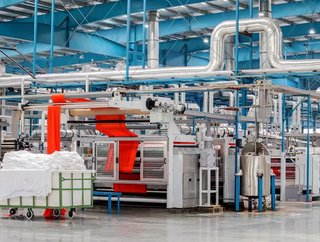Can AI create manufacturing jobs?

With more than 2mn manufacturing jobs expected to remain unfilled by 2030, AI can add, rather than eliminate, new jobs across industrial sectors and empower employees to realise the potential of Industry 4.0. Berk Birand, founder & CEO of Fero Labs, explains how
One crucial reason for the labour shortage is the lack of trained workers to fill specific mid-level operational roles. Traditionally, training and certification for a role like machinist or tool maker can take three to five years, dissuading many from pursuing these career paths. But with AI, this training process can be shortened to a few months.
Creating new possibilities with AI in manufacturing
Using a digital twin (a virtual copy of an industrial process), prospective operators can explore new scenarios and settings they might encounter on the factory floor. They can also experiment with hypothetical situations to test their decision-making prowess, without impacting production. This creates a new possibility for hiring. Rather than confining their search to operators who already have experience, manufacturers can hire less experienced individuals and bring them up to speed quickly and efficiently.
In addition to operators, the manufacturing labour shortage includes data scientists. As manufacturers aim to realise the potential of Industry 4.0, it's crucial to have someone interpret all the data generated by factory sensors and translate it into actionable recommendations. That's where AI can play a huge role. Explainable machine learning software can ingest all the data generated on the factory floor and determine the optimal settings to make production more efficient in real time—essentially turning engineers and operators into data scientists.
Technology can create new labour roles
That doesn't mean AI is eliminating data scientists. To the contrary, technology empowers them to take on more interesting work. Traditionally, industrial data scientists spend a large portion of their time on rote data analysis. With machine learning software taking care of tasks like data processing and cleaning, data scientists can spend their work hours exploring more intriguing problems and use cases.
With all the talk of automation killing jobs, the word "AI" often conjures up alarm. But with the right applications, AI can do the opposite—helping manufacturers train and empower their human employees to make the Internet 4.0 dream a reality.
- Taiwan Global Frontrunner In Manufacturing AI AdoptionAI & Automation
- Join Belden for a Free Webinar on Connected Plant Floor DataProduction & Operations
- Exotec: Warehouse Automation & The British Alcohol IndustrySmart Manufacturing
- SAP’s AI Joule set to Transform Supply Chain ManufacturingAI & Automation






